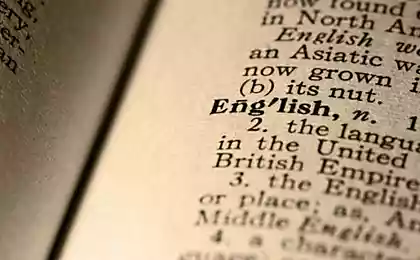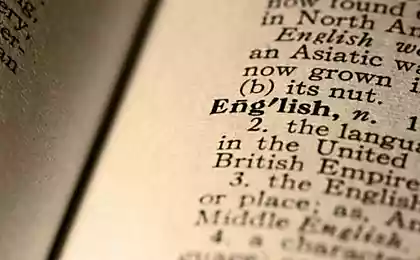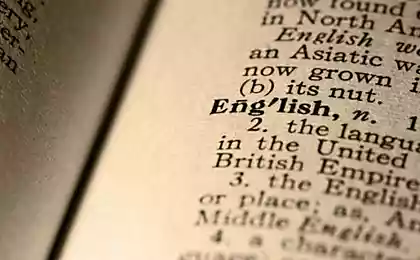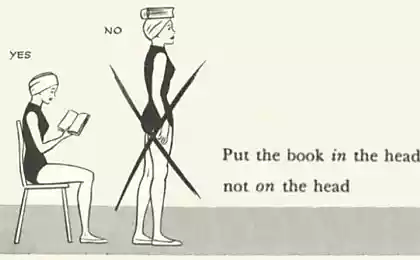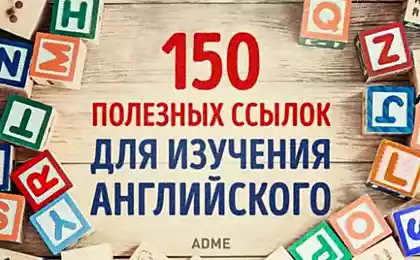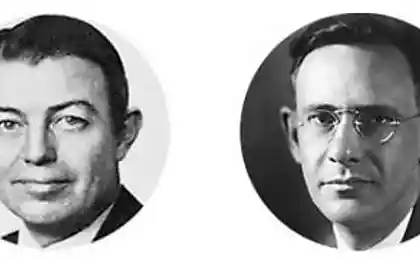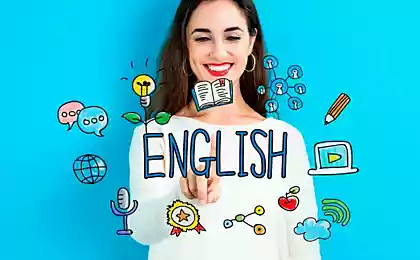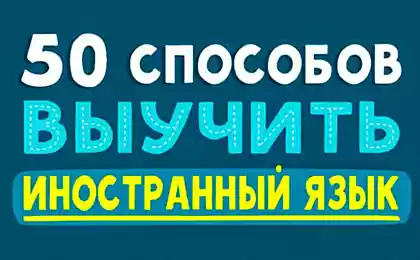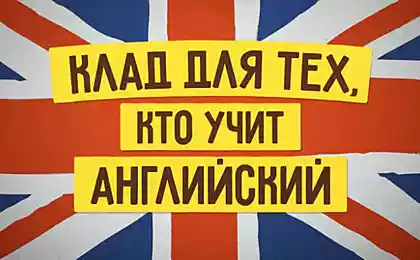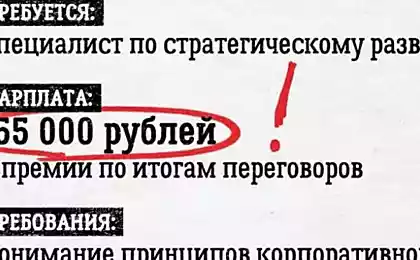1600
15 errors in the English language, which makes the carriers Russian
Our native language is still Russian, and we are so accustomed to its rules that automatically apply them to other languages. And in the end we make mistakes - funny, silly, or even indecent. Editorial site contains a list of popular errors such roda.1. I feel myself (I feel) Wrong: I feel myself fine today.
That's right: I feel fine today.
In English, after the verb «feel» (feel) is not put reflexive pronoun «myself» (myself) - native English and so understand what you are talking about your health. They just say: I feel well; I feel sick; I feel happy.
If you say «I feel myself», then for the English-speaking ... it sounds strange. They'll think you're telling them about physical contact with himself or touching himself.
2. Enough (enough) Wrong: She spoke English enough well to get the job.
That's right: She spoke English well enough to get the job.
In English, the correct order of words is more important than Russian. Place the word «enough» to the offer depends on what part of speech it belongs: adverb, adjective or noun.
If «enough» refers to an adjective or adverb, that is after the verb meaning:
- Do you think he's old enough to watch that movie?
- We've done enough today.
Old (Adult) - adjective, today (today) - the adverb.
If «enough» refers to the noun, it stands before the verb:
- We had enough money to buy a ticket.
3. Normal (normal) Wrong: How are you? - I'm normal, thanks.
That's right: How are you? - I'm fine, thanks.
In English, we do not usually use the word «normal» (normal) to talk about their mood or the last day. Native English say «fine» and «okay». The word «normal» they perceive rather in the sense of "an average, ordinary," or just "normal».
Imagine that you ask, "How are you, how are you?". And you answer: "I am normal." Agree, sounds ridiculous: if you are trying to convince the recipient that you are a normal person, not a strange or even crazy. Perhaps a good time to express their normal world, but you are certainly not talking about it.
4. Scientist, scholar (scientist) Wrong: Scientists study history so that humanity can learn from the past.
That's right: Scholars study history so that humanity can learn from the past.
Both words and «scientist», and «scholar», translated to English as "scientists", but they have different value.
«Scientist» - an expert in precision (chemistry, physics, mathematics, biology) or social (psychology, sociology, political science) sciences.
«Scholar» - is an expert in a particular field of knowledge. He is well versed in the subject matter, because it examines. «Scholar» - an expert in areas such as history, art and languages. Also called clever student who receives a scholarship - «scholarship».
The difference also in the fact that «a scientist» to study the subject uses scientific methods - building a hypothesis, conducting experiments, making conclusions. «A scholar» usually do without.
5. Prepositions Wrong: I was waiting David on the theater.
That's right: I was waiting for David at the theater.
In the study of the English language are often confused in the Russian-speaking pretexts or even lowered them. We think that the prepositions in English sentences should be the same as they would be in Russian. But it is not. To avoid confusion, you just have to learn the most common expression where the preposition is closely related to the verb.
- Depends on - depends.
- Tired of - tired.
- Divide into - divided into.
Often in the English sentence you need an excuse, but Russian is not needed, or vice versa:
- To wait for someone - wait for someone.
- To graduate from school - to finish school.
- To listen to someone / music - listen to someone / music.
- To be afraid of someone / something - afraid someone / something.
- To explain to someone - to explain to someone.
- To answer a question - answer the question (note: no excuse, but with the article).
Prepositions can be divided into several categories. So you will understand when and how to use an excuse:
a) Coatings (table, wall, floor, boards, roof, shelves): on.
- For example: on the roof, on the table.
b) technology (computer, TV, radio, screen, DVD, hard disk, CD): on.
- On this DVD.
c) Public transport (train, bus, tram, plane, ship, ferry): on.
- On the bus, on the ship.
d) Inside the physical object / structure (the book, pocket, drawer number): in.
- In his pocket, in a boxes.
e) locations (office, stadium, shop, supermarket, station, theater, park) at / in.
- In the street, at the station.
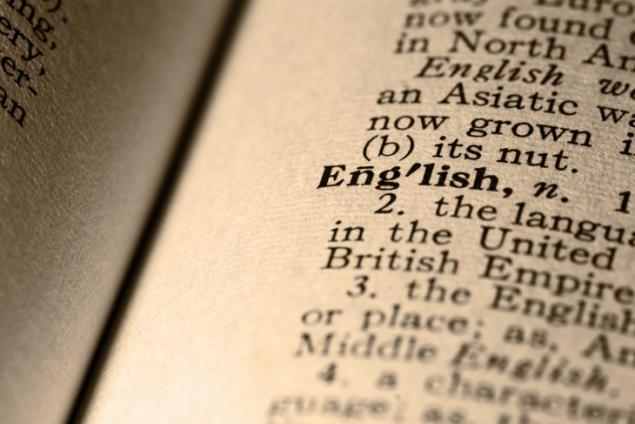
6. How and What (like that) Wrong: How do you call this in English?
That's right: What do you call this in English?
Russian speakers often confuse the question words «how» and «what», asking in English: "What's it called?". They are trying to start with the familiar phrase, "as the» - «how». But in the English use it is «what». It is necessary to remember.
7. City Wrong: I am from Moscow city.
That's right: I am from Moscow / the city of Moscow.
It is often said only the name (Moscow, New York, London) and do not add to the word "city". If, however, it is important to clarify that this is the city and nothing else, use the structure «the city of».
For example: the city of London, the city of Boston, the city of Moscow.
In rare cases, the word "city" part of the name: New York City, Salt Lake City, Mexico City. Sometimes it makes it clear that this particular city and not another geographical area with the same name:
- I grew up in a small town in the state of New York, but now I live in New York City.
- Although I have lived in Moscow for several years, my parents still live in a small town outside of the city but still in Moscow Oblast.
- I visited Salt Lake City this summer.
8. Plural and Singular (singular and plural) Wrong: The professor gave us several useful advices for our researches.
That's right: The professor gave us several useful words of advice for our research projects.
And in Russian and English have countable nouns that can be easily counted (chair, apple, glass), and uncountable, which can not count without additional units (water in liters, the number of minutes the rice in grams). But often countable nouns in English are innumerable.
An example of uncountable nouns:
- Advice, research, knowledge, accommodation, baggage, equipment, furniture, garbage, information, luggage, money, news, pasta, progress, travel, work.
If you want to use uncountable nouns plural, use additional words: piece, glass, chunk.
For example:
- We just bought several new pieces of equipment for our lab.
- I'll have three glasses of lemonade, please.
- She cut off a large chuck of meat and fed it to her dog.
There are a few fixed expressions, which in the English language is always used in the singular:
- That's right: Thank God, we have each other.
- Wrong: Thanks Gods
- That's right: No problem!
- Wrong: No problems!
- That's right: We have no comment about the case.
- Wrong: no comments.
9. Possibility and Opportunity Wrong: I will have the possibility to go to the conference next year.
That's right: I will have the opportunity to go to the conference next year.
Russian speakers often say «possibility», when speaking about their opportunity to do anything. But in the English language there are words «opportunity», also means "opportunity". What's the word you use depends on the context.
«Possibility» - is something hypothetical that may or may not be true.
«Opportunity» - is a favorable circumstances, that allow us to do something or give a chance to act.
- There is a possibility that it will rain tomorrow, so you will have an opportunity to use your new umbrella.
- There is a possibility that we will have enough funding for another research assistant position. If so, you will have an opportunity to apply for this position.
10. Say and Tell Wrong: Can you say me how to tell this in English?
That's right: Can you tell me how to say this in English?
«Say» say when they want to recite the words of another person. «Tell» use when they want to ask something, ask or inform someone about something. The verb «tell» followed by a direct object: tell us / him / her / the audience.
- At lunch John told his coworkers about his business trip to China.
- John said that the business trip to China went very well.
Remember the phrase:
- Say yes or no, a few words, something.
- Tell a story, a lie, a secret, a joke, the truth.
11. Learn and Teach Wrong: Can you learn me to speak English better?
That's right: Can you teach me to speak English better?
«Learn» and «teach» often confused because both words mean "to teach." But in English, their values are quite different.
«Learn» - is to learn on their own. Student teaching homework, girl learning to play the guitar, and so on.
«Teach» - is to teach someone. The teacher teaches students the finer points of the language.
- «I remind myself every morning: Nothing I say this day will teach me anything. So if I'm going to learn, I must do it by listening. «- Larry King
12. Free Wrong: I want to speak English freely.
That's right: I want to speak English fluently.
If a person wants to say that is fluent in a foreign language, it uses the word «fluent», and not «free». Yes, «free» means "free", but more its value - for "free". And if the «free» after the noun (smoke-free, car-free, alcohol-free), it means that the action is disabled.
This is the smoke-free bar. If you want to smoke, you must go outside.
13. Do and Make Wrong: I think I did a mistake
That's right: I think I made a mistake.
In the Russian language, both the verb - «do» and «make» - translated as "do". But they have different value.
«Do» - for daily activities or work, which will result in something intangible, something that can not be touched:
- Do homework, do the dishes, do the laundry, do a job, do the shopping.
«Do» is used when generalize, but did not specify. Often there are a number of words: something, nothing, anything, everything:
- He has done nothing all day.
- She would do anything for her Mom.
- Is there something I can do for you?
«Make» use when they talk about the creation of the material, tangible things:
- Make food, make a cup of tea, make clothes, make a mess.
But there are many exceptions-phrases with verbs «make» and «do», who just need to remember:
Make money, do someone a favor, do business, make a decision, do good, make a plan.
14. Expensive and dear (expensive) Wrong: That computer is too dear for me to buy.
That's right: That computer is too expensive for me to buy.
Russian word "expensive" is translated into English as «expensive» or «dear», again depending on the context. Both words mean something valuable to humans, but they have a different meaning.
«Dear» - is something of value in the emotional or personal sense:
- This necklace is not very expensive, but, since it belonged to my grandmother, it is very dear to me.
«Expensive» - is something of value in financial terms, for example, an expensive purchase:
- I wish I had not dropped my new iPhone in the toilet. It was really expensive!
15. Gender (genus) Wrong: It's time I bought a new computer, since he is very old.
That's right: It's time I bought a new computer, since it is very old.
Russian speakers are often habit say «he» or «she» in cases where it is necessary to use «it».
In English the personal pronouns «he» or «she» applicable to humans. It is appropriate to say «he» or «she» about dogs, cats or other animals whose sex is known. Often we call so pets that we love or that we like, they are for us - not faceless «it», namely «he» or «she» - «it" or "it is».
- I have fond memories of my dog, Spot. He was a great dog.
You can talk as much about inanimate objects, to which we are attached - cars, ships, and even countries:
- Look at that sports car! Is not she a beauty?
- «God bless America,
Land that I love,
Stand beside her, and guide her
Through the night with a light from above ».
Irving Berlin
In the English language there are words that already have a kind of - they take into account the actual sex of the person or animal:
Women: women, girl, mother, daughter, aunt, niece, nun, goddess, empress, queen, princess, heroine, actress, waitress, lioness, cow.
Male: man, boy, father, son, uncle, nephew, monk, god, emperor, king, prince, hero, actor, waiter, lion, bull.
In modern English words like «waiter» (waiter), «actor» (actor), «hero» (hero) is used for both male and for female. If you need to describe exactly the floor, you can add the word "man" or "woman»:
- In Shakespeare's time women could not be actor and play on stage, so all female roles were played by actor men.
The English word «hero» (hero) is not only the hero of the book. The hero - a person, real or fictional, are showing great courage or going to sacrifice for the common good.
via factroom.ru
That's right: I feel fine today.
In English, after the verb «feel» (feel) is not put reflexive pronoun «myself» (myself) - native English and so understand what you are talking about your health. They just say: I feel well; I feel sick; I feel happy.
If you say «I feel myself», then for the English-speaking ... it sounds strange. They'll think you're telling them about physical contact with himself or touching himself.
2. Enough (enough) Wrong: She spoke English enough well to get the job.
That's right: She spoke English well enough to get the job.
In English, the correct order of words is more important than Russian. Place the word «enough» to the offer depends on what part of speech it belongs: adverb, adjective or noun.
If «enough» refers to an adjective or adverb, that is after the verb meaning:
- Do you think he's old enough to watch that movie?
- We've done enough today.
Old (Adult) - adjective, today (today) - the adverb.
If «enough» refers to the noun, it stands before the verb:
- We had enough money to buy a ticket.
3. Normal (normal) Wrong: How are you? - I'm normal, thanks.
That's right: How are you? - I'm fine, thanks.
In English, we do not usually use the word «normal» (normal) to talk about their mood or the last day. Native English say «fine» and «okay». The word «normal» they perceive rather in the sense of "an average, ordinary," or just "normal».
Imagine that you ask, "How are you, how are you?". And you answer: "I am normal." Agree, sounds ridiculous: if you are trying to convince the recipient that you are a normal person, not a strange or even crazy. Perhaps a good time to express their normal world, but you are certainly not talking about it.
4. Scientist, scholar (scientist) Wrong: Scientists study history so that humanity can learn from the past.
That's right: Scholars study history so that humanity can learn from the past.
Both words and «scientist», and «scholar», translated to English as "scientists", but they have different value.
«Scientist» - an expert in precision (chemistry, physics, mathematics, biology) or social (psychology, sociology, political science) sciences.
«Scholar» - is an expert in a particular field of knowledge. He is well versed in the subject matter, because it examines. «Scholar» - an expert in areas such as history, art and languages. Also called clever student who receives a scholarship - «scholarship».
The difference also in the fact that «a scientist» to study the subject uses scientific methods - building a hypothesis, conducting experiments, making conclusions. «A scholar» usually do without.
5. Prepositions Wrong: I was waiting David on the theater.
That's right: I was waiting for David at the theater.
In the study of the English language are often confused in the Russian-speaking pretexts or even lowered them. We think that the prepositions in English sentences should be the same as they would be in Russian. But it is not. To avoid confusion, you just have to learn the most common expression where the preposition is closely related to the verb.
- Depends on - depends.
- Tired of - tired.
- Divide into - divided into.
Often in the English sentence you need an excuse, but Russian is not needed, or vice versa:
- To wait for someone - wait for someone.
- To graduate from school - to finish school.
- To listen to someone / music - listen to someone / music.
- To be afraid of someone / something - afraid someone / something.
- To explain to someone - to explain to someone.
- To answer a question - answer the question (note: no excuse, but with the article).
Prepositions can be divided into several categories. So you will understand when and how to use an excuse:
a) Coatings (table, wall, floor, boards, roof, shelves): on.
- For example: on the roof, on the table.
b) technology (computer, TV, radio, screen, DVD, hard disk, CD): on.
- On this DVD.
c) Public transport (train, bus, tram, plane, ship, ferry): on.
- On the bus, on the ship.
d) Inside the physical object / structure (the book, pocket, drawer number): in.
- In his pocket, in a boxes.
e) locations (office, stadium, shop, supermarket, station, theater, park) at / in.
- In the street, at the station.

6. How and What (like that) Wrong: How do you call this in English?
That's right: What do you call this in English?
Russian speakers often confuse the question words «how» and «what», asking in English: "What's it called?". They are trying to start with the familiar phrase, "as the» - «how». But in the English use it is «what». It is necessary to remember.
7. City Wrong: I am from Moscow city.
That's right: I am from Moscow / the city of Moscow.
It is often said only the name (Moscow, New York, London) and do not add to the word "city". If, however, it is important to clarify that this is the city and nothing else, use the structure «the city of».
For example: the city of London, the city of Boston, the city of Moscow.
In rare cases, the word "city" part of the name: New York City, Salt Lake City, Mexico City. Sometimes it makes it clear that this particular city and not another geographical area with the same name:
- I grew up in a small town in the state of New York, but now I live in New York City.
- Although I have lived in Moscow for several years, my parents still live in a small town outside of the city but still in Moscow Oblast.
- I visited Salt Lake City this summer.
8. Plural and Singular (singular and plural) Wrong: The professor gave us several useful advices for our researches.
That's right: The professor gave us several useful words of advice for our research projects.
And in Russian and English have countable nouns that can be easily counted (chair, apple, glass), and uncountable, which can not count without additional units (water in liters, the number of minutes the rice in grams). But often countable nouns in English are innumerable.
An example of uncountable nouns:
- Advice, research, knowledge, accommodation, baggage, equipment, furniture, garbage, information, luggage, money, news, pasta, progress, travel, work.
If you want to use uncountable nouns plural, use additional words: piece, glass, chunk.
For example:
- We just bought several new pieces of equipment for our lab.
- I'll have three glasses of lemonade, please.
- She cut off a large chuck of meat and fed it to her dog.
There are a few fixed expressions, which in the English language is always used in the singular:
- That's right: Thank God, we have each other.
- Wrong: Thanks Gods
- That's right: No problem!
- Wrong: No problems!
- That's right: We have no comment about the case.
- Wrong: no comments.
9. Possibility and Opportunity Wrong: I will have the possibility to go to the conference next year.
That's right: I will have the opportunity to go to the conference next year.
Russian speakers often say «possibility», when speaking about their opportunity to do anything. But in the English language there are words «opportunity», also means "opportunity". What's the word you use depends on the context.
«Possibility» - is something hypothetical that may or may not be true.
«Opportunity» - is a favorable circumstances, that allow us to do something or give a chance to act.
- There is a possibility that it will rain tomorrow, so you will have an opportunity to use your new umbrella.
- There is a possibility that we will have enough funding for another research assistant position. If so, you will have an opportunity to apply for this position.
10. Say and Tell Wrong: Can you say me how to tell this in English?
That's right: Can you tell me how to say this in English?
«Say» say when they want to recite the words of another person. «Tell» use when they want to ask something, ask or inform someone about something. The verb «tell» followed by a direct object: tell us / him / her / the audience.
- At lunch John told his coworkers about his business trip to China.
- John said that the business trip to China went very well.
Remember the phrase:
- Say yes or no, a few words, something.
- Tell a story, a lie, a secret, a joke, the truth.
11. Learn and Teach Wrong: Can you learn me to speak English better?
That's right: Can you teach me to speak English better?
«Learn» and «teach» often confused because both words mean "to teach." But in English, their values are quite different.
«Learn» - is to learn on their own. Student teaching homework, girl learning to play the guitar, and so on.
«Teach» - is to teach someone. The teacher teaches students the finer points of the language.
- «I remind myself every morning: Nothing I say this day will teach me anything. So if I'm going to learn, I must do it by listening. «- Larry King
12. Free Wrong: I want to speak English freely.
That's right: I want to speak English fluently.
If a person wants to say that is fluent in a foreign language, it uses the word «fluent», and not «free». Yes, «free» means "free", but more its value - for "free". And if the «free» after the noun (smoke-free, car-free, alcohol-free), it means that the action is disabled.
This is the smoke-free bar. If you want to smoke, you must go outside.
13. Do and Make Wrong: I think I did a mistake
That's right: I think I made a mistake.
In the Russian language, both the verb - «do» and «make» - translated as "do". But they have different value.
«Do» - for daily activities or work, which will result in something intangible, something that can not be touched:
- Do homework, do the dishes, do the laundry, do a job, do the shopping.
«Do» is used when generalize, but did not specify. Often there are a number of words: something, nothing, anything, everything:
- He has done nothing all day.
- She would do anything for her Mom.
- Is there something I can do for you?
«Make» use when they talk about the creation of the material, tangible things:
- Make food, make a cup of tea, make clothes, make a mess.
But there are many exceptions-phrases with verbs «make» and «do», who just need to remember:
Make money, do someone a favor, do business, make a decision, do good, make a plan.
14. Expensive and dear (expensive) Wrong: That computer is too dear for me to buy.
That's right: That computer is too expensive for me to buy.
Russian word "expensive" is translated into English as «expensive» or «dear», again depending on the context. Both words mean something valuable to humans, but they have a different meaning.
«Dear» - is something of value in the emotional or personal sense:
- This necklace is not very expensive, but, since it belonged to my grandmother, it is very dear to me.
«Expensive» - is something of value in financial terms, for example, an expensive purchase:
- I wish I had not dropped my new iPhone in the toilet. It was really expensive!
15. Gender (genus) Wrong: It's time I bought a new computer, since he is very old.
That's right: It's time I bought a new computer, since it is very old.
Russian speakers are often habit say «he» or «she» in cases where it is necessary to use «it».
In English the personal pronouns «he» or «she» applicable to humans. It is appropriate to say «he» or «she» about dogs, cats or other animals whose sex is known. Often we call so pets that we love or that we like, they are for us - not faceless «it», namely «he» or «she» - «it" or "it is».
- I have fond memories of my dog, Spot. He was a great dog.
You can talk as much about inanimate objects, to which we are attached - cars, ships, and even countries:
- Look at that sports car! Is not she a beauty?
- «God bless America,
Land that I love,
Stand beside her, and guide her
Through the night with a light from above ».
Irving Berlin
In the English language there are words that already have a kind of - they take into account the actual sex of the person or animal:
Women: women, girl, mother, daughter, aunt, niece, nun, goddess, empress, queen, princess, heroine, actress, waitress, lioness, cow.
Male: man, boy, father, son, uncle, nephew, monk, god, emperor, king, prince, hero, actor, waiter, lion, bull.
In modern English words like «waiter» (waiter), «actor» (actor), «hero» (hero) is used for both male and for female. If you need to describe exactly the floor, you can add the word "man" or "woman»:
- In Shakespeare's time women could not be actor and play on stage, so all female roles were played by actor men.
The English word «hero» (hero) is not only the hero of the book. The hero - a person, real or fictional, are showing great courage or going to sacrifice for the common good.
via factroom.ru
20 rather strange psychological reasons why people fall in love
10 disturbing facts about the planet Kepler 452b, which has already been called a "second Earth". Perhaps it is inhabited!
